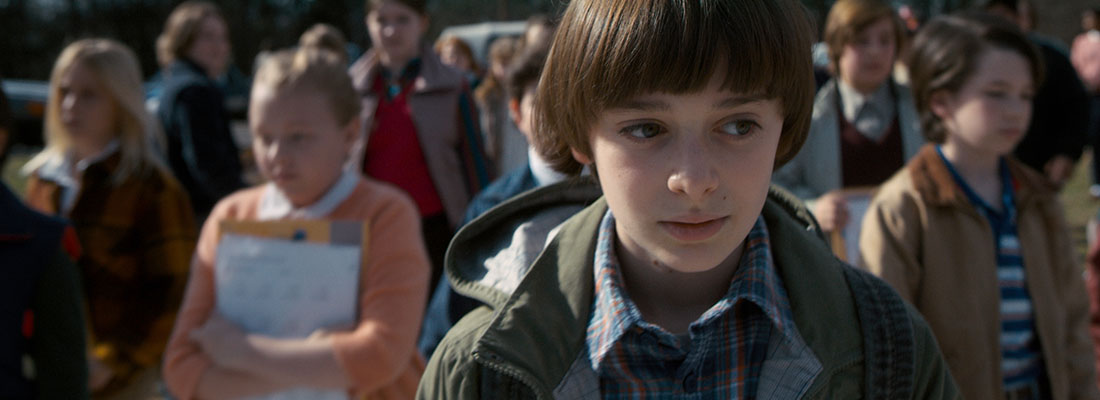Spoilers for Stranger Things and Stranger Things 2.
Stranger Things 2, like the first season of the show, does many things right. The characters and plot are expertly crafted, and it has turned the show into a phenomena. The second season of the show deals with many of the consequences of the actions taken by the characters and monsters in the first season.
One of the most traumatized characters was Will, who was mostly absent last season. Spending a week in The Upside Down had mental and physical effects on Will. At the end of last season, we saw him cough up pieces from The Upside Down. Throughout the season, this escalates to a full-scale possession. When we first see Will, he is being treated for PTSD, but no one quite understands what to do with Will and his reactions to the trauma.
Will, like many people with PTSD, suffers from flashbacks, though his flashes to The Upside Down are in the present rather than the past. And, also like many with PTSD, the people around him struggle to understand what he’s going through and give him well-intentioned, but poor advice. Joyce struggles to understand why his nightmares affect him while he’s awake. Hopper’s insight that his nightmares are real may have been literal on the show, but they also present important real-world context.
The effects of trauma are often difficult to understand. Even Will, who is able to see his experience from his own perspective and the perspective of the shadow monster, struggles to fully grasp what is happening. However, Will does not need to know every aspect of this being and the evilness that surrounds it to beat it. He needs to know just enough and have loved ones who listen enough to help him escape from the clutches of the shadow monster. The effects of this horrific event are still with him, but he is able to come back to himself.
This season, the show also introduces a more human villain. Last season, Jonathon and Steve both served as a complicated human adversary. Both did horrible things to Nancy and each other, but the season ended with redemption for each character. Billy, however, does not get the same treatment. Billy is simply an embodiment of rage. With the exception of his interaction with Mike and Nancy’s mother, he only brings chaos, terror, and violence to the other characters. The audience sees why Billy is like this, but it isn’t enough to redeem him, and the show seemed uninterested in any redemption for Billy.
Similarly, the show introduces Kali as an older sister and mentor to Eleven/Jane. Both girls were exploited by Hawkins Labs, and they both feel a great deal of anger for what they’ve lost. Kali has chosen to take back what is hers with the force given to her by the experiments. Like Billy, she is an embodiment of emotion and rage, but unlike Billy, she focuses this on vigilante justice to enact punishment. Eleven can sympathize with this and spent much of last season enacting revenge, but now she is older with more guidance. Within her adopted family, there is conflict, and despite her love for her sister, she chooses to channel her emotions into saving the innocent rather than hurting the guilty.
Like all good sequels, Stranger Things 2 deals with the consequences of the first season while building upon established relationships and plots. Each character experienced something horrible in the first season, and they have dealt with this to varying degrees of success. Through this shared trauma, love and support has emerged. In both seasons, this is what has kept the darkness away. In Stranger Things, this may be a metaphor for the real situations people face, but, unlike so many other forms of media, the magic of the show does not villainize nor make unreal those suffering. Instead, it legitimizes their trauma and uses the magical elements of the world to explain the devastating effects of that trauma.

